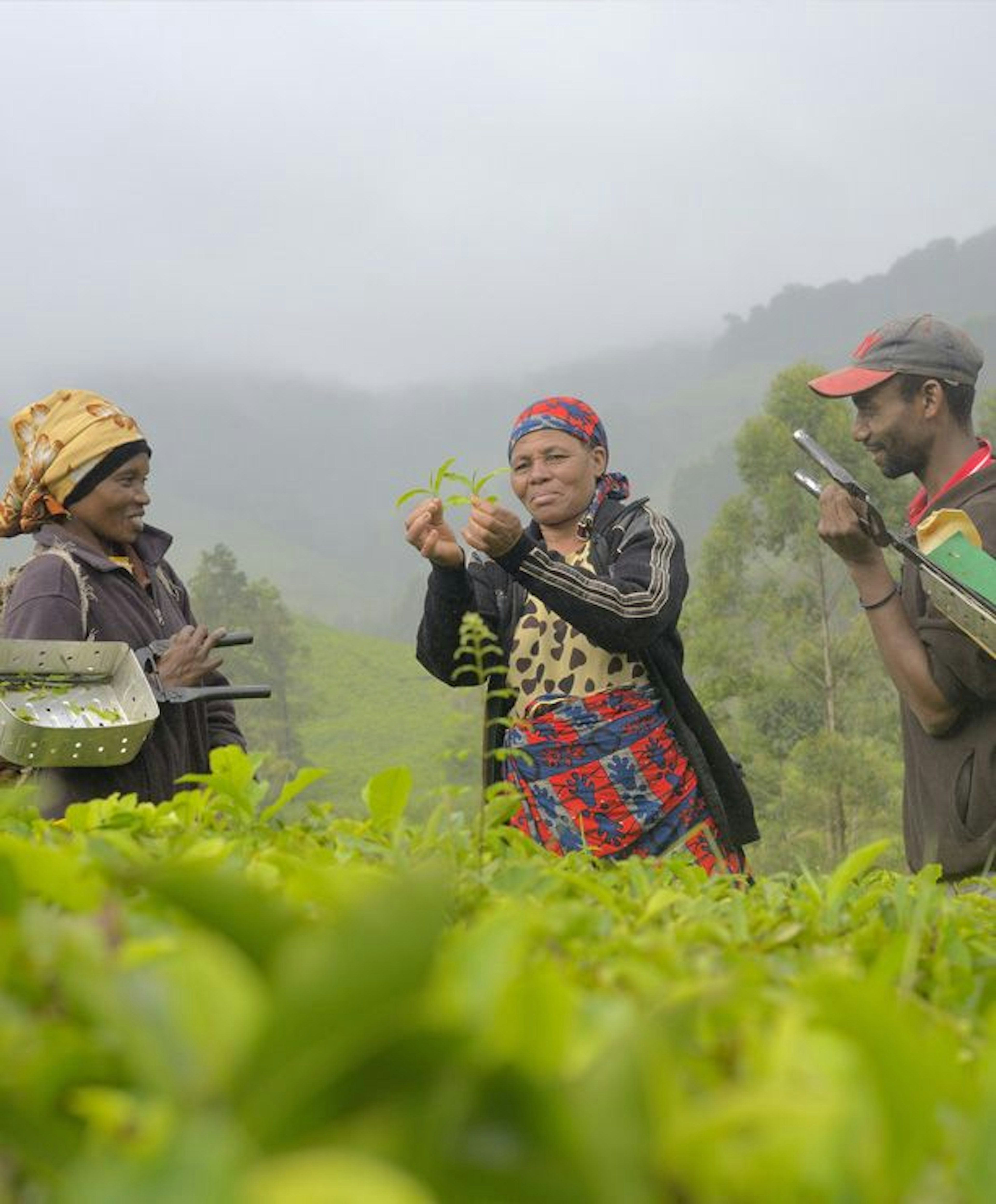Tea

Overview
Tea is one of the most popular drinks in the world. Nearly 50 % of tea is produced in China, followed by India, Kenya, Sri Lanka and Türkiye. Tea is also a significant industry in countries such as Uganda, Malawi, Indonesia and Bangladesh.
Globally, tea production employs around 13 million people, with 9 million smallholder producers responsible for roughly 60 % of total output. Fairtrade supports both hired labour organisations and smallholder tea producers in 12 countries, primarily India, Sri Lanka, Kenya and Malawi.
Despite increasing mechanisation, tea production remains labour-intensive and offers limited earning opportunities. The global tea trade is largely dominated by a small group of companies. That means smallholder tea farmers often find themselves in vulnerable positions with little negotiation power.
The salient issues in the tea sector are (in the order of saliency):
- Living income & wage
The tea industry is impacted by its historical legacy of colonialism and, increasingly, developments such as mechanisation, which contribute to reduced income opportunities for workers and weakens their employment conditions. Wages frequently fall below living wage estimates.
- Health & Working conditions
Tea cultivation is labour-intensive. Picking is done by hand and involves carrying heavy loads over long distances. The lack of protective gear exposes workers to health risks from agrochemicals.
- Water & Biodiversity
The overuse of fertilisers, improper application of insecticides and weedkillers can disrupt biodiversity, degrade soil and cause water pollution through agrochemical run-off.
- Gender equity
In many countries, more than half of all tea workers are women. In their labour-intensive, low-paid jobs, they often face gender-based violence and discrimination, and exclusion from decision-making and union representation.
- Freedom of association & Collective bargaining
In Sri Lanka and India, trade unions can be biased and not represent the interests of their members. Tea workers in India may face retribution and punishment from management if they participate in strikes or join unions.
- Freedom of speech, thought and participation
Tea workers are often reluctant to report poor living and working conditions due to their dependence on plantation management, restricting their freedom of speech. Civil society can also be prevented from overseeing plantation conditions.
- More information on risks in tea

Root causes
Unequal value distribution: There are serious colonially rooted disparities in global tea value chains. A small number of companies dominate the tea market and most of the retail value of tea is captured in the packaging, branding and retail phases. This leaves a small share for tea producers who face rising input costs while consumer prices remain relatively static.
Structural inequality: The remote location and historical use of indentured labour on tea estates have affected workers by limiting alternative jobs and tenure rights. In many cases, trade unions, which can be aligned with management, fail to advocate for better working conditions.
Climate change: Global tea production is increasingly threatened by climate change. Erratic weather patterns, the spread of pests and diseases and degrading soil quality are expected to lower yields, adversely impacting economies and the livelihoods of farmers and workers.
Background data on tea (*Global Volume / **Fairtrade Volume)
Largest producer countries*
- China (48%)
- India (21%)
- Kenya (8%)
- Türkiye (4%)
- Sri Lanka (3%)
- Others (13%)
Data from 2022. Source: Tea Board of the Government of India; ITC Annual Bulletin; 2022.
Fairtrade certified producer organisations**
Data from 2022. Updated in March 2024.
Fairtrade certifiable production**
metric tonnes, 2022. Updated in March 2024.
Farmers and workers in Fairtrade organisations**
Data from 2022. Updated in March 2024.

Stay updated
Partnering for change
Companies can be part of the solution by identifying and addressing the most serious risks and root causes in collaboration with farmers, workers and other affected people. Sign up to receive updates as we add new information to this Map, or to hear how Fairtrade can support your corporate sustainability due diligence.
Map View